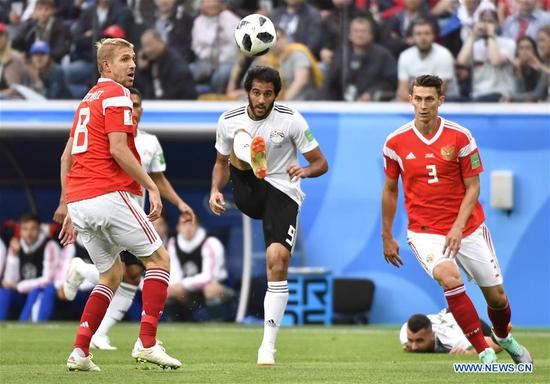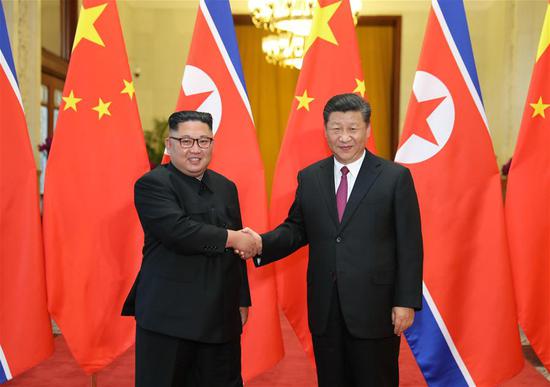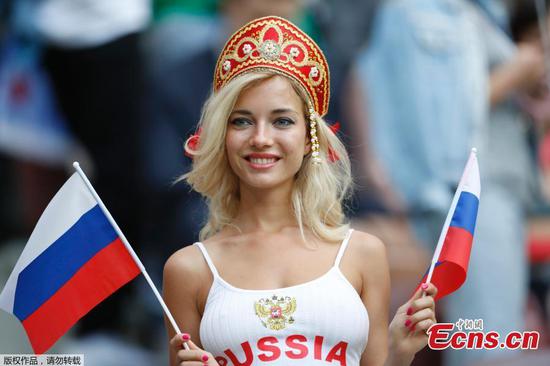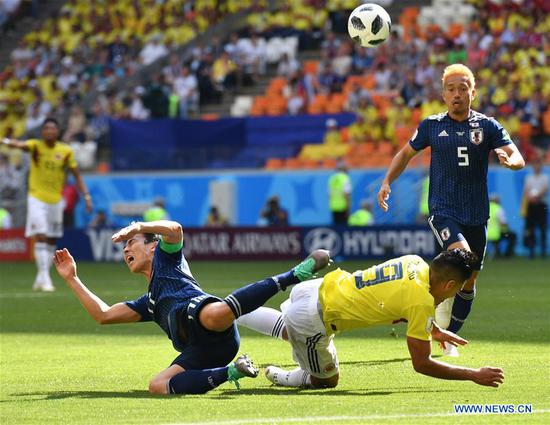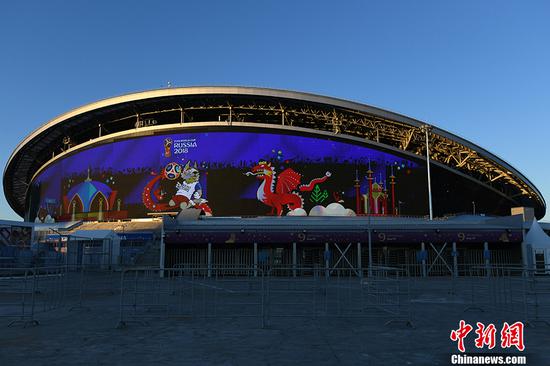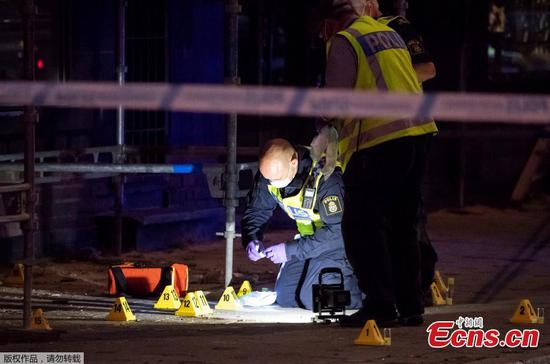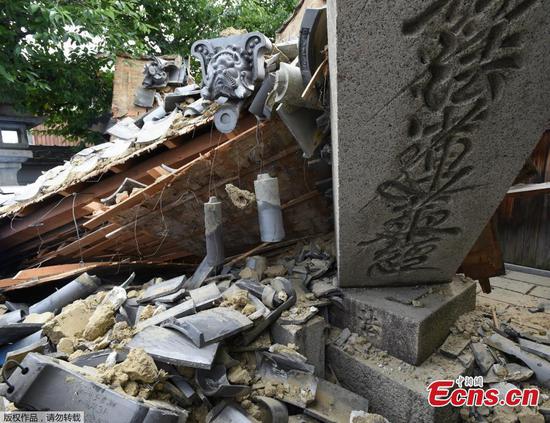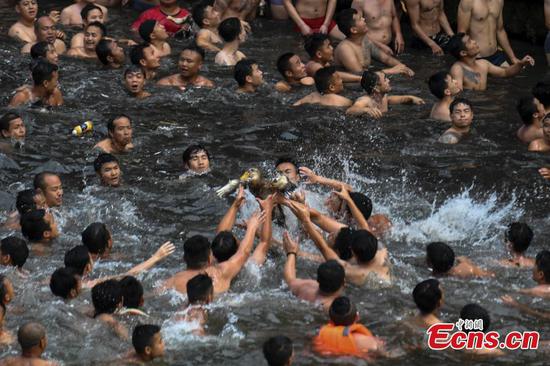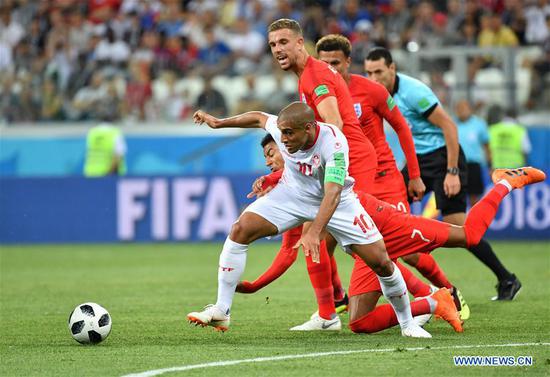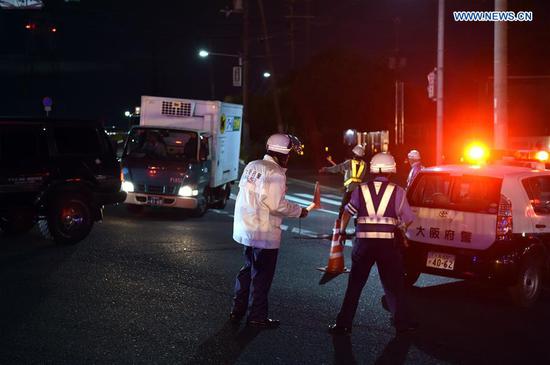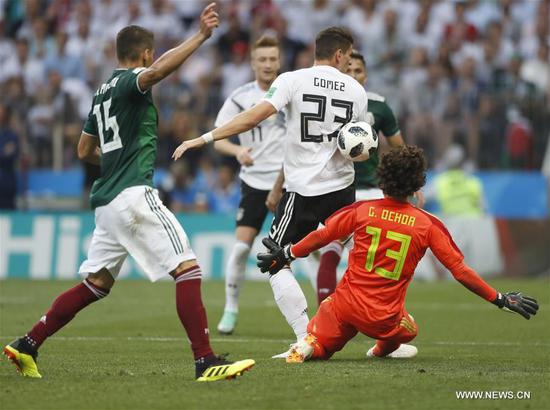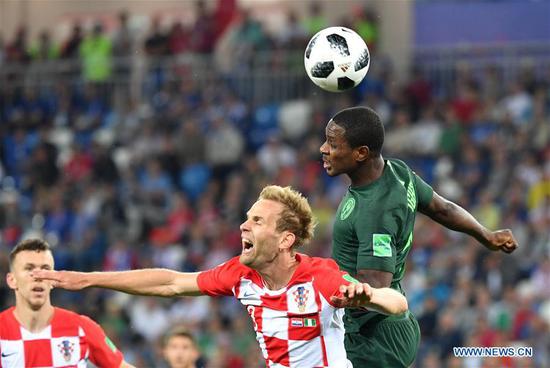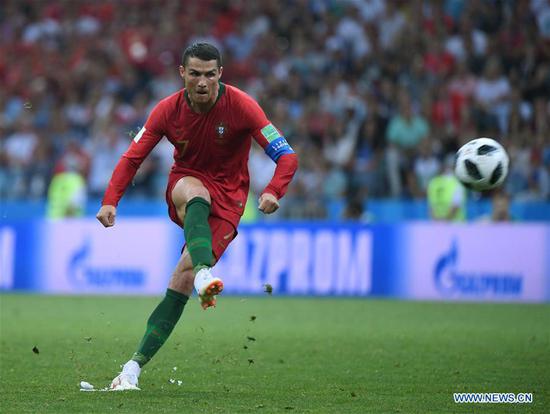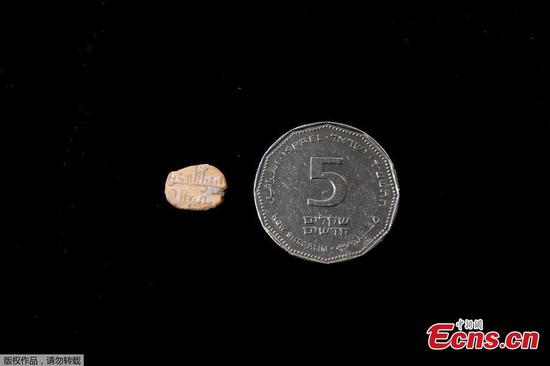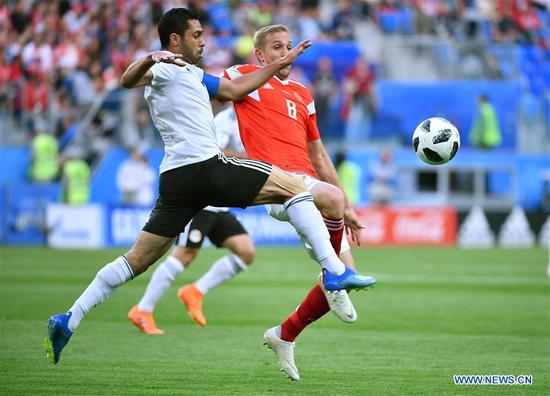
Iury Gazinsky (R) of Russia vies with Ahmed Fathi of Egypt during a Group A match between Russia and Egypt at the 2018 FIFA World Cup in Saint Petersburg, Russia, June 19, 2018. (Xinhua/Li Ga)
The Video Assistant Referee (VAR) system which is being used for the first time in the World Cup in Russia has certainly given plenty of reasons for discussion, with Brazil angry that Switzerland's equalizing goal against them in the 1-1 draw in Rostov on Sunday night was allowed to stand and asking for explanations why nobody spotted Stefan Zuber's push on Joao Miranda.
England meanwhile were unhappy two clear fouls on striker Harry Kane went unpunished during their 2-1 win over Tunisia on Monday, while Tunisia did get a spot kick after the VAR officials deemed Kyle Walker's outstretched arm deserved a penalty at the other end.
England coach Gareth Southgate said after the game that although he had no complaints about Tunisia's penalty, he wondered why "it wasn't one at the other."
Southgate was correct in highlighting that the decision to award Tunisia a first half penalty wasn't a "clear and obvious error," but added, "if penalties are going to be given for that then it's going to be an interesting tournament."
So far that prediction is being proved correct as the first round of 16 group matches have produced 9 penalty kicks; a record for the first round of group matches and a big increase on the number of penalties given in 2014, 2010 and 2006.
In Brazil four years ago, the eighth penalty of the tournament wasn't blown until the 25th game, while it needed 35 games for eight penalties to be awarded in South Africa and 40 in the 2006 World Cup, which was held in Germany.
It could be that in 2006 past referees believed that contact had to be much clearer than in South Africa and Brazil and you could argue it is easier to win a penalty now than in the past, with many officials considering a slight contact from a defender to be worthy of punishment.
That trend seems to have been born out so far in Russia with some of the penalties awarded coming after only slight contact (and in the case of Ronaldo's penalty against Spain, it could even be argued it was the forward provoking the contact than the defender).
However, the fact VAR can only overturn a decision which is deemed a "clear and obvious error" means all of those penalties were given and Zuber's goal was allowed to stand, because although the decisions were debatable, they were not clear mistakes. Meaning that although VAR is a help it is not going to put an end to controversy as many would have expected.









